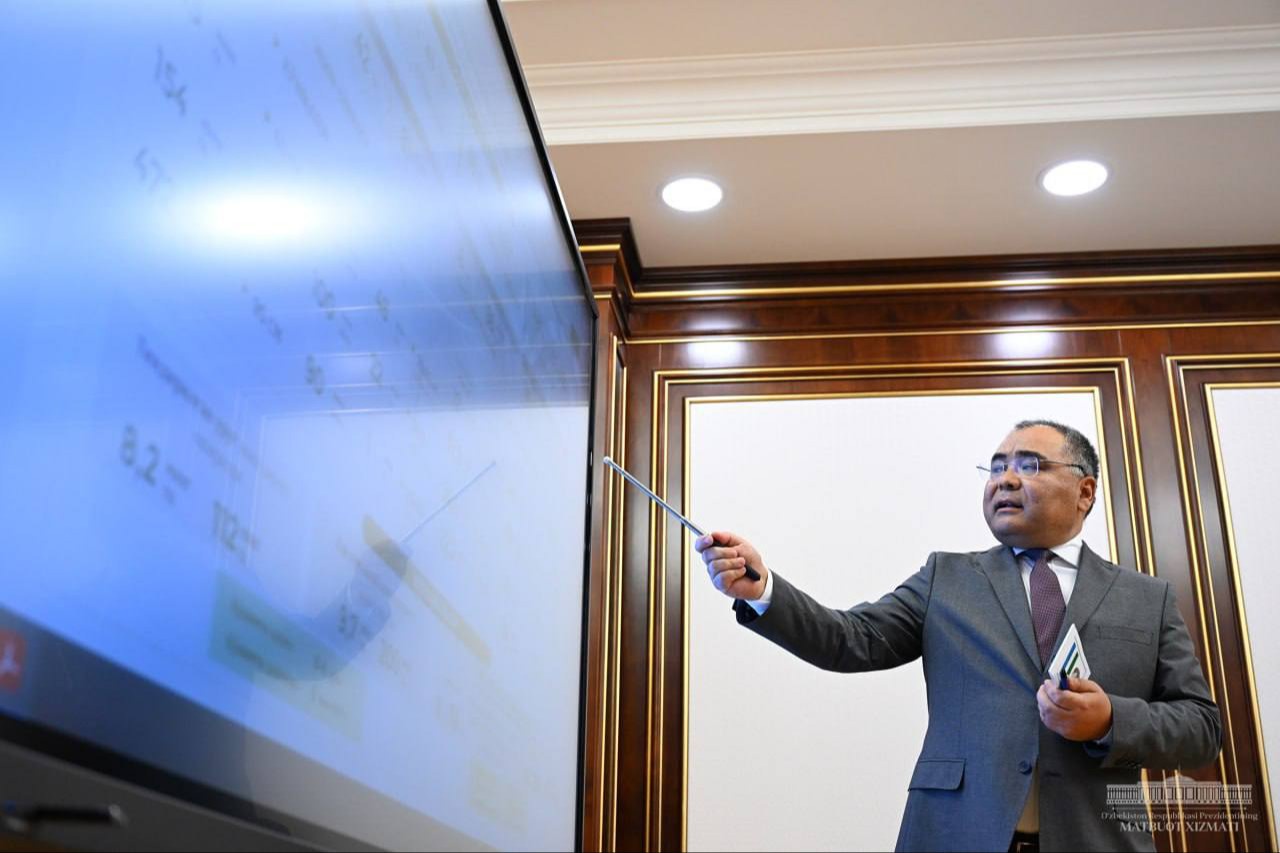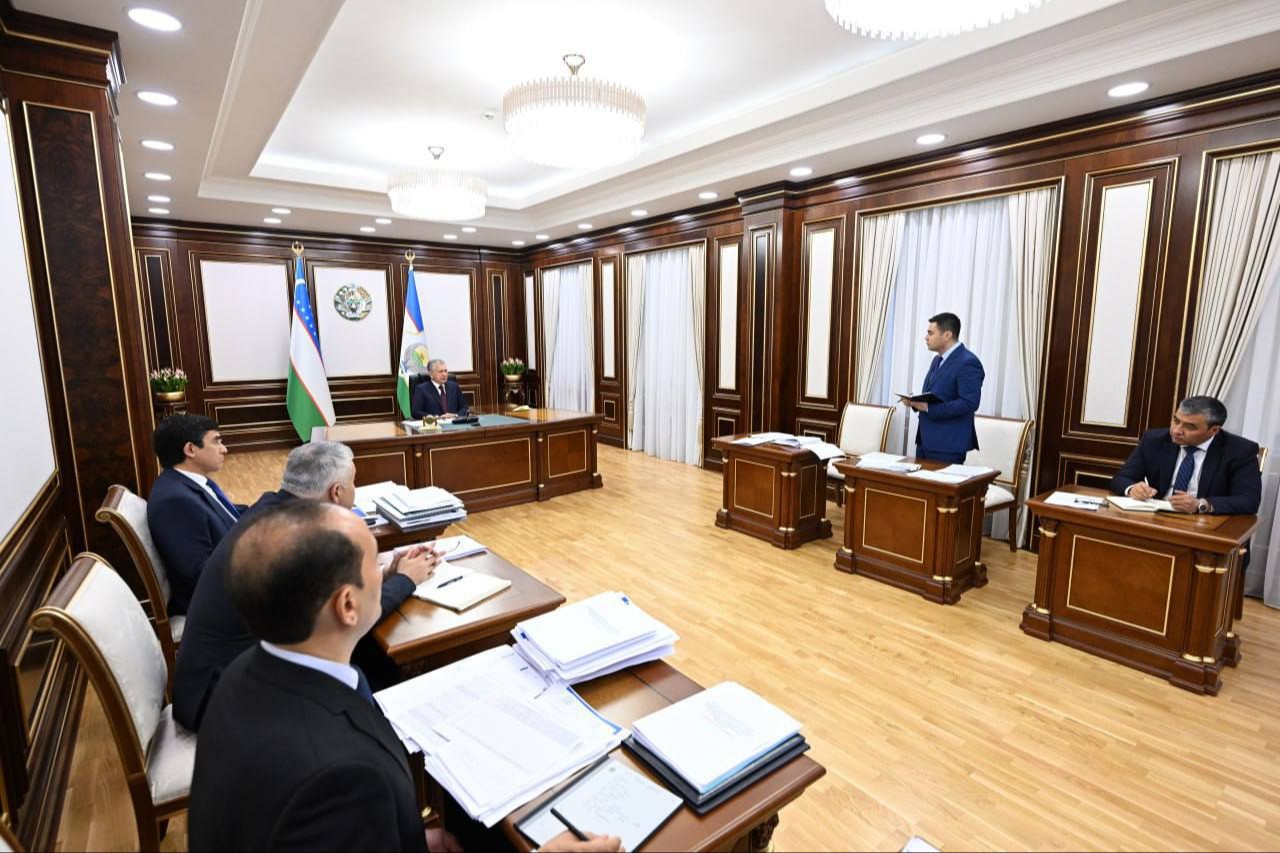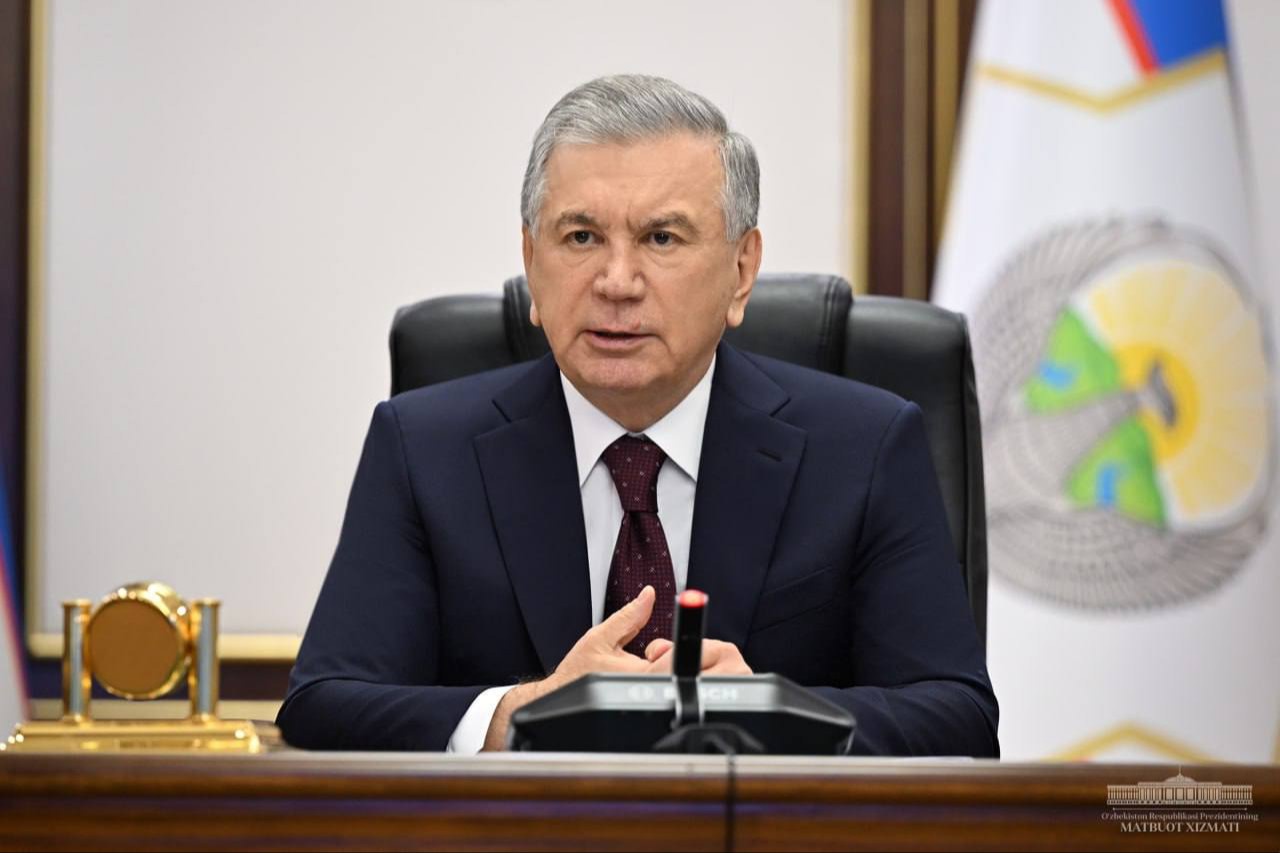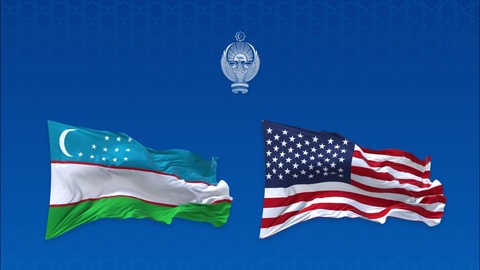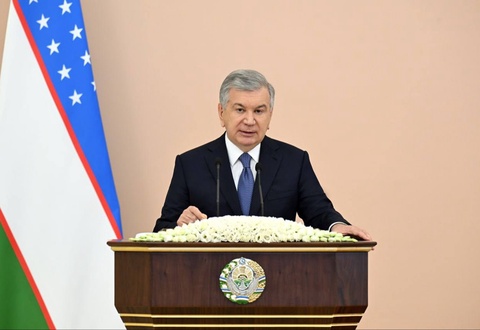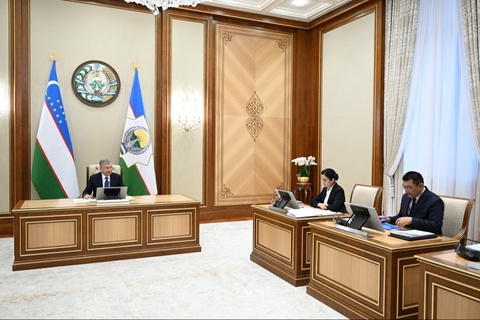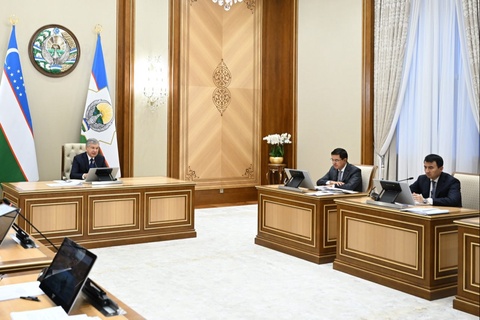Uzbekistan has set a course for fully implementing the enormous potential of agricultural sectors. In recent years, many areas, such as cotton growing, fruit and vegetable growing, greenhouse farming, and the processing industry, have been reformed to increase productivity and economic efficiency.
More than 1 million hectares of cotton are grown in 136 districts. This year, 42 promising and 18 foreign varieties have been planted in addition to traditional varieties to increase yields. In particular, for the first time, varieties imported from China, India, and Türkiye are grown on almost 100,000 hectares.
Also, as an experiment, soaked seeds were sown on 112,000 hectares, and interregional and interdistrict rotation of varieties was carried out on 200,000 hectares.
The responsible persons presented information on the results of these innovations and plans for their further expansion next year. The Head of state emphasized the need to create a competitive environment when importing seeds from abroad and developing agricultural technology for growing cotton.
Agriculture’s yield primarily depends on seeds. However, many farmers, trying to save on the seed premium, sow low-reproduction seeds. It takes five years to test and include a new seed variety in the state register. In best practice, private elite farms carry out primary seed production.
In this regard, the introduction of a new variety testing system has been determined. According to it, the state share in 31 elite seed farms and 6 seed procurement workshops will be put up for public auction. 46 seed enterprises will be merged, and 13 modern enterprises will be created in the regions. New seeds will be introduced into sowing in 2 years.
Another important industry is gardening and viticulture. Uzbekistan has 266 thousand hectares of gardens and 132 thousand hectares of vineyards. However, this does not correspond to the potential of our fertile land. There is a lot of underutilized land in the regions, especially hills.
A new system for creating new orchards, including apple orchards and vineyards, on such lands will be introduced.
The Agency for the Development of Agro-Industry will develop feasibility studies for projects, taking into account the specialization of regions, soil, and climatic conditions. Preferential loans will be allocated for land preparation, the purchase of seedlings, the installation of planting and irrigation systems, and the 3-year care of the garden before it begins to bear fruit. Newly created industrial gardens will be fully equipped with modern water-saving technologies.
The system for allocating land for such projects will also change. Local hokimiyats will make proposals to create gardens on the site of low-yield lands. These lands will be leased based on an open electronic competition for up to 30 years.
The President of Uzbekistan emphasized the importance of expanding the creation of industrial gardens and vineyards.
“Our main goal is to develop agriculture based on scientifically sound methods and the best practices of the Food and Agriculture Organization of the United Nations”, Shavkat Mirziyoyev said.
The presentation also touched upon the issues of efficiently using greenhouses and providing them with electricity, natural gas, and working capital.
Today, saving water is a pressing issue. In the regions, 732 thousand hectares of cotton and grain fields are irrigated by internal pumping units, 41% of which consume a lot of energy.
In this regard, it was proposed to allocate a one-time subsidy for the modernization of pumps at the disposal of cotton and grain producers. This will reduce electricity consumption and irrigation time by up to 60 percent, ultimately reducing the cost of production.
The Head of state approved these proposals and gave additional instructions for their improvement.


